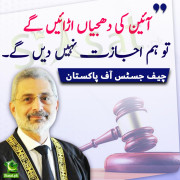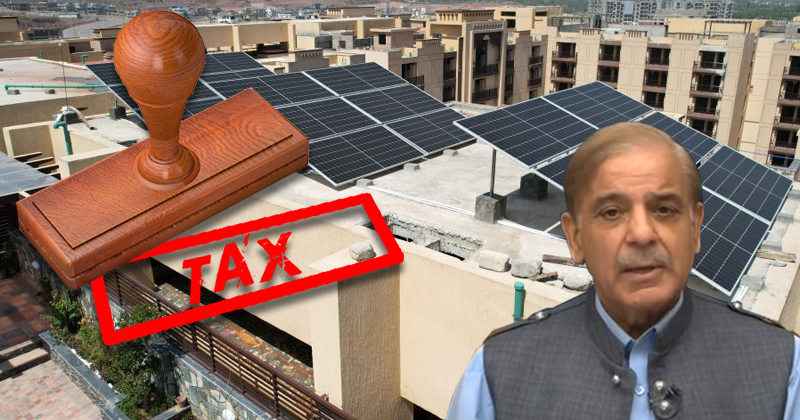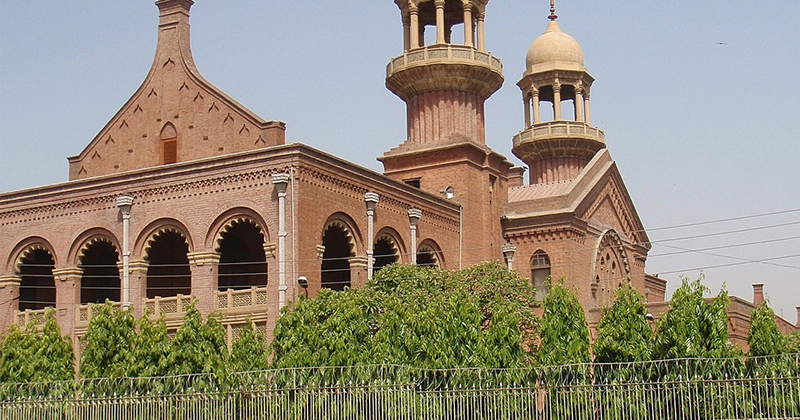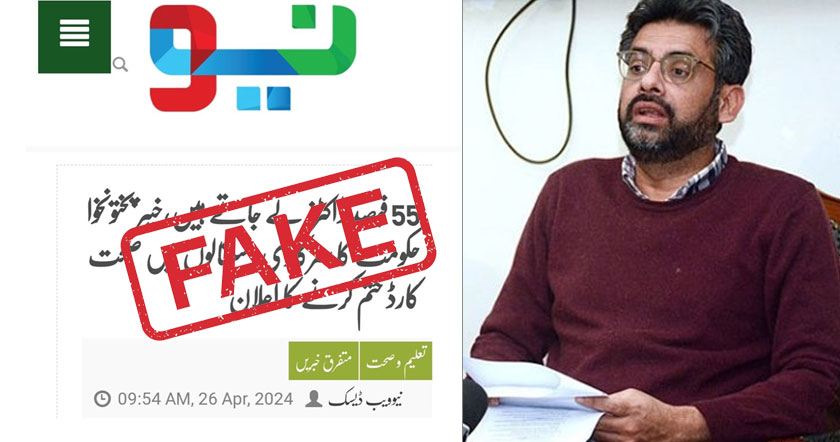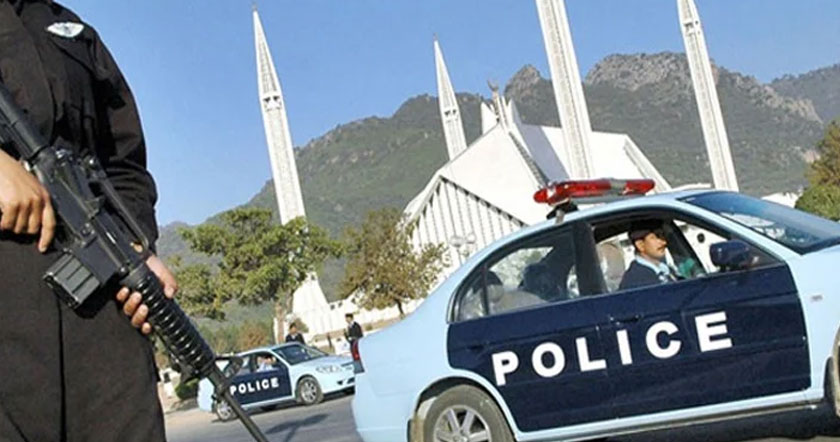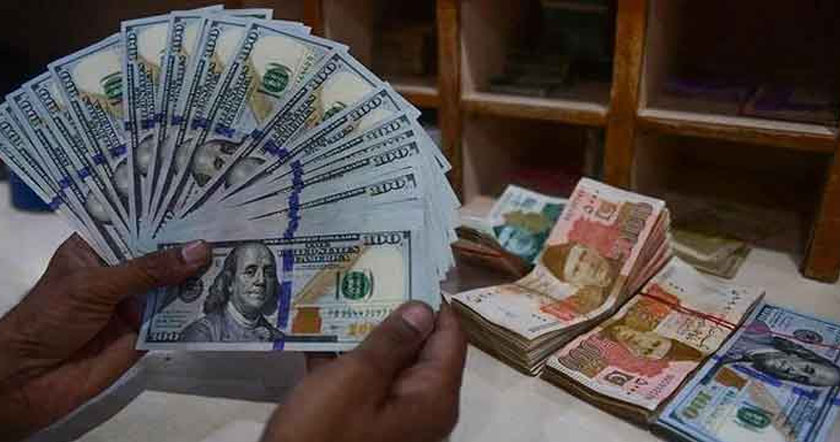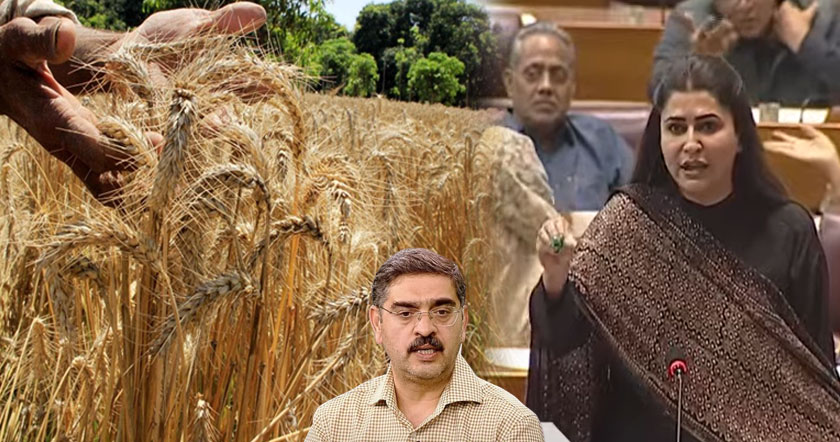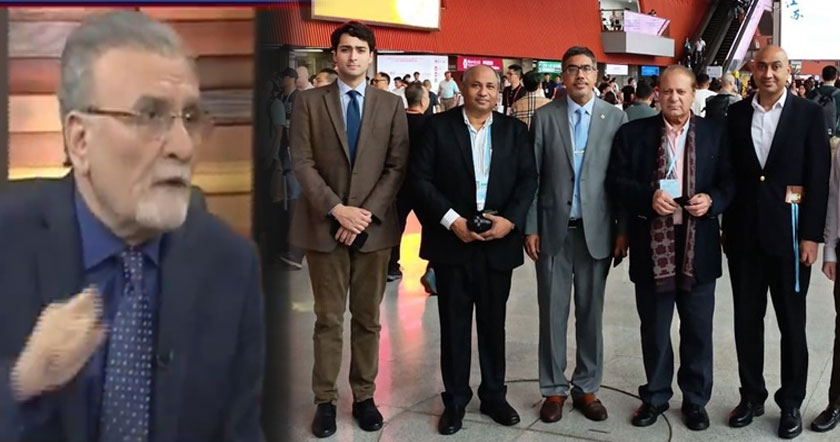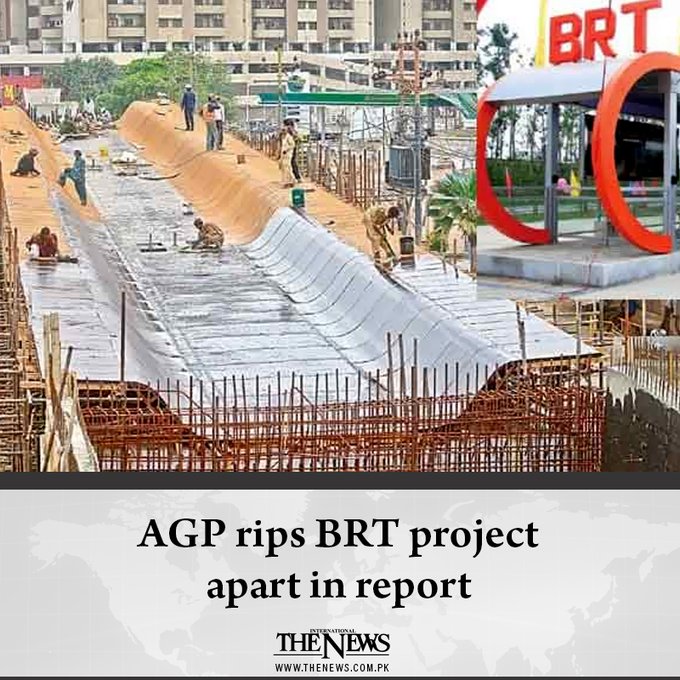
The Auditor General of Pakistan in his latest audit report on BRT Peshawar documented losses, wastages, unauthorized variations, irregular payments of billions of rupees and observed that the project’s planning was faulty and construction work started in the absence of detailed engineering design.
A copy of the report shared with The News by an official source in the KP government shows that the ADB had well in time identified the risk that “political pressure to fast-track the project due to General Elections 2018 will undermine both design and implementation of the project”.
The ADB also did not want the DED (Detailed Engineering Design) to be developed on the basis of preliminary design. But still, the provincial government did not care about any such warning and demonstrated that its “planning process was so shallow that it couldn’t even calculate the appropriate and reasonable completion time”. The report said it was seen throughout the construction phase that the narrow route (selected for the project) with very little Right of Way was never the feasible option for the construction of a BRT Corridor. It can now be seen that at various stations the station entrances look very inappropriate with structures standing exactly in front of shops on the University Road and in front of residential streets and house-corners inside Hayatabad Township.
Premature procurement of buses for the BRT worth US$7.9 million may end up with expiry of the warranty period of these buses, the audit report said, adding that wear and tear will also occur with no fare revenue from these buses. While the buses which have already arrived face wear and tear without having been used, there is another awkward situation — non-supply of 169 BRT buses worth US$ 33m — that has arisen because of faulty timelines given for project completion. The report said the project was conceived in 2013-14 but proper planning was not in place to foresee scenario over the coming years- 2017 to 2019- when BRT corridor construction would take place.
The report said, “With regard to the projects undertaken during the BRT Corridor Preliminary Design and later on during the Detailed Engineering Design (DED) stages, the audit observation was justified to term all expenditure wasteful which resulted from lack of vision in the planning process.”
The report pointed out unauthorized variations of Rs10.4 billion; loss of Rs200 million due to payment of excess quantity of pile concrete; loss of Rs54.8 million due to non-recovery of cost of dismantled material; payment of Rs95 million as salaries without approved pay structure; non-deposit of profit worth Rs12 million into government treasury earned from saving account; unauthorized payment of Rs45 million to officers; interest worth Rs12 million earned not reflected in financial statement; contradiction in approved PC-I and business model regarding annual subsidy of Rs1.6 billion; wasteful expenditure of Rs716 million on beautification, construction of roads and electrification; premature procurement of BRT buses spending US$ 7.9 million; the warranty period of these buses may expire as well as wear and tear will occur with no fare revenue from these buses; loss of Rs10 million due to depreciation of buses waiting to be brought on road; construction supervision contract worth Rs615 million and US$1.97 million awarded without fulfilling the criteria for performance assessment; non-implementation of penalty/liquidated damages worth Rs1.9 billion etc.
According to the report, “An email extract of December 2016 shared with the auditors indicated that ADB did not want the DED (Detailed Engineering Design) to be developed on the basis of the preliminary design.” Lack of planning was further evident from the fact that in its aide-memoire dated 25th September 2017, the ADB had stated that while the DED was still under-preparation, the provincial government somehow got the original PC-I approved well below the ADB estimates of USD 587 million. Likewise the preliminary design, the report said, the DED consultants were also not allowed appropriate completion time which is normally allowed for detailed engineering designing of the projects of such magnitude.
The DED contract starting in Feb 2017 was supposed to be completed in Feb 2018 but due to unnecessary urgency imposed on the project, the civil works were initiated in November 2017 when complete designs were not even available.
The ADB was cautious about all these issues and for that reason on page number 29 of the Project Administration Manual, it had identified the risk that “political pressure to fast-track the project due to General Elections 2018 will undermine both design and implementation of the project”.
It again demonstrates that the provincial planning process was so shallow that it couldn’t even calculate the appropriate and reasonable completion time. The ADB cannot be blamed for all this because they have discharged their obligation by identifying the risk well before the start of the civil works. Planning lapses have been observed throughout the project implementation. These include pre-mature delivery of fleet. Import of fleet for the purpose of test runs and training drivers resulted in loss due to bus maintenance cost from being kept idle for most of the time. Design flaws and poor quality of work as pointed-out by Project Management Unit and ADB can be linked-to planning failure as this led to civil works being started before the finalization of DED. Another planning failure relates to the financial viability of the project and the TransPeshwar BoD meeting held on 16th May 2018 wherein various subsidy options were considered.
The report said poor designing and ill-planning affected the project negatively, the human resource and materials were not procured according to the project guidelines, the key components of reporting, financial management, and quality controls were also found missing. The audit found that authorities failed to adopt the Financial Management Manual for the sound financial management of the project, as advised by the ADB.
The reporting requirements were not followed as described in the agreement. The quality control and monitoring framework was not in place as required. No contract system was developed. The timelines and schedules have been revised many times and still, any completion date does not seem realistic in near future. Also not a single bus stop has been built on the feeder routes so far and ADB’s representatives in their visit of 5th April, 2019, have also down concerns over this slow progress. The problems of poor designing and low quality of civil works were frequently reported.
According to the loan agreement between the ADB and the government, the project is expected to be completed by June 2021. However, unrealistic completion deadlines were given in disregard of the ADB apprehensions. The initial cost of the project as approved was Rs49.34 billion which was later revised to Rs66.4 billion.
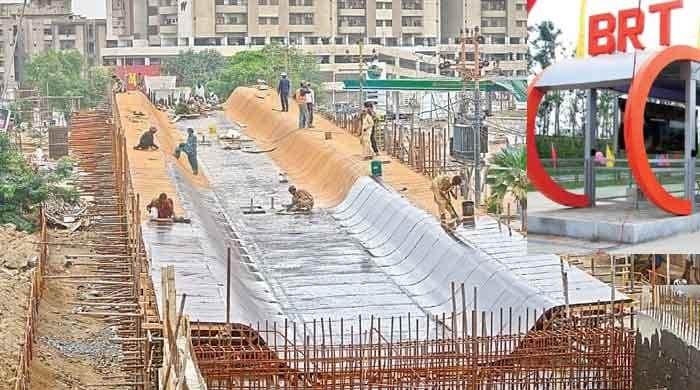
AGP rips BRT project apart in report
ISLAMABAD: The Auditor General of Pakistan in his latest audit report on BRT Peshawar documented losses, wastages, unauthorized variations, irregular payments of billions of rupees and observed that...



